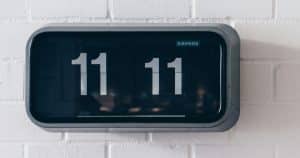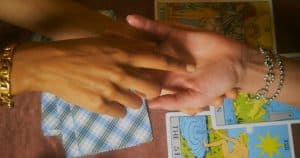
When your friends decide that it is time for you to get together with someone, you will be asked about going on a blind date. This is a ritual as old as civilization itself. Before you get resistant to the idea, understand that in some cultures, the blind date is the wedding itself. There are lots of success stories and loving couples who first met on a blind date set up by friends, classmates, co-workers or family. If you are sitting home alone and wallowing in self-pity, turning down a blind date sends the signal to everyone that you are more interested in complaining about your own drama than you are in moving toward a fulfilling partnership. If you are actively dating or think that something is developing into a serious relationship, it can be much easier to turn down a blind date. While there is a stigma to this ritual, though, there is also a reason that it is still around and as popular as ever.
Most relationships are with people we meet in social or professional settings. Blind dates are the wild card, the chance that a mutual friend or family member really does see the possibilities inherent in the meeting of two persons.
The easiest way to respond to a friend’s offer to set you up on a blind date is to suggest that this person host a get-together that is couples only. The party can be designed to partner you up with this suggested date. The pressure of committing to an entire night out with a stranger can be mitigated by arriving and leaving on your own, and also being in the comfortable setting of familiar faces. You can observe how your date responds to people and surroundings, and his general manners as well as how much attention he gives you.
If a gathering with friends is not in the cards, though, do not turn a blind date down. First, get as much information on this guy as possible. You will want to access his social networking profile through your mutual friend and will want many questions answered. Turn the date down if any of the four relationship red flags appear. If the answer to any one of the following four questions is yes, this red flag alone should block you from agreeing to the date:
- Is he married or in a relationship?
- Is he currently unemployed?
- Is he a player?
- Does he party too hard?
If the answer to all of these is a definite “No” (and understand that “Yes, but …” is a “Yes” answer, no buts about it), and your mutual contact is unable to sponsor some sort of meet and greet, then your friend should agree to send a “Set up” email to you and your prospective date. The person trying to set you two up addresses this email to both of you, explains that the interest in meeting in each other is mutual, and now that you each have the other’s email address, you two can take it from there.
In the old days, your mom’s friend would play matchmaker. She would have your mom come over, call the guy and hand your mom the phone to get a conversation started. This all can be done on cell phones today, but if you have a secondary email address, it might be safer to work slowly towards revealing all of your contact information. Once you have had a few email exchanges and you are interested, ask him for his phone number and a good time to call.
If your exchanges over email or conversations on the phone don’t go well, you are under no obligation to pursue the date. If your friend has said something stupid along the lines of, “If I set you up with him on email, you have to go out with him,” that is an unrealistic expectation. You do owe your friend a follow-up with at least an explanation as to why you are not going to continue pursuing a date. You don’t have to apologize for something that doesn’t feel right, and you should not badmouth this man unless there is something truly egregious in your exchanges.
If things work out between you two on the internet and on the phone, the face-to-face meeting is the next step. All of the classic first date advice applies:
- Drive to an agreed upon location separately.
- Don’t have more than one drink.
- Listen as much as you talk.
- Offer to pay your share, but accept his offer to pay for it all should he make it.
- Discuss the possibility of another date only if you are serious about another date.
- Leave if and when something makes you feel uncomfortable, paying for your share as you depart.
When you finally do meet up, the usual nervousness is to be expected. You do have something to talk about, in that you both know the person who set you two up, so that little ice breaker alone can be great. Once a conversation has begun, this is like any normal date spawn from connecting on the internet.
Beyond this, though, the blind date does put upon you certain social obligations. If you are interested in this guy and he does not necessarily feel like pursuing things, you may develop some animosity toward the friend or friends who put you two together. Try to understand that your feelings of rejection should not be toward the person or people who tried to help you create something.
Regardless of whether you decided that he wasn’t right or he has kept his distance, let the person who set you up know that you appreciate the help and that maybe one day down the road you would want that sort of thing to happen again. If he or she wants to set you up again with somebody else right away, you have to ask one question: Why did your friend choose the first available man for you and not the one that is being recommended now?
If you and your blind date hit it off and begin dating, you may notice the tendency of the friends who set you up to have a great interest in your relationship. You might find that something you thought was private between you and your new partner is being shared with your social circle. You have to approach this in two ways. First, you have to pace yourself in finding out what you can comfortably reveal to your new partner that you don’t necessarily want broadcast to friends and family. Second, you must communicate what should remain private between you two and what should not.
Many people meet their soulmate on a blind date. Others enjoy nice relationships and learn a little about themselves and what they really want out of life. Even in this age of intense technology, the blind date is not going anywhere. The advice of friends and family may not be the final word, but it is invaluable as we pursue love.











